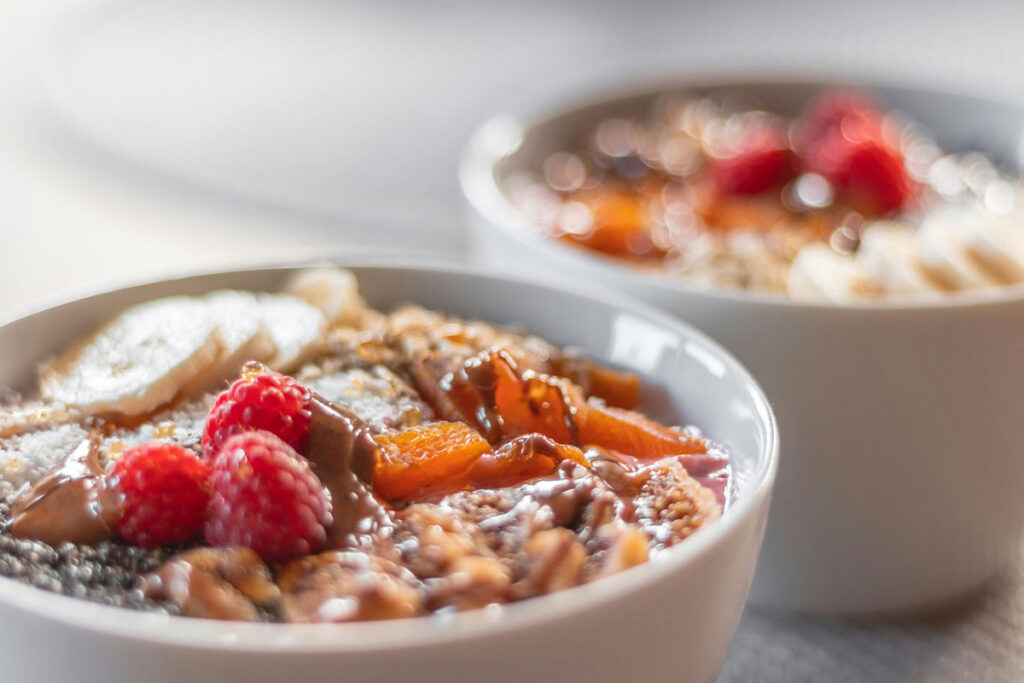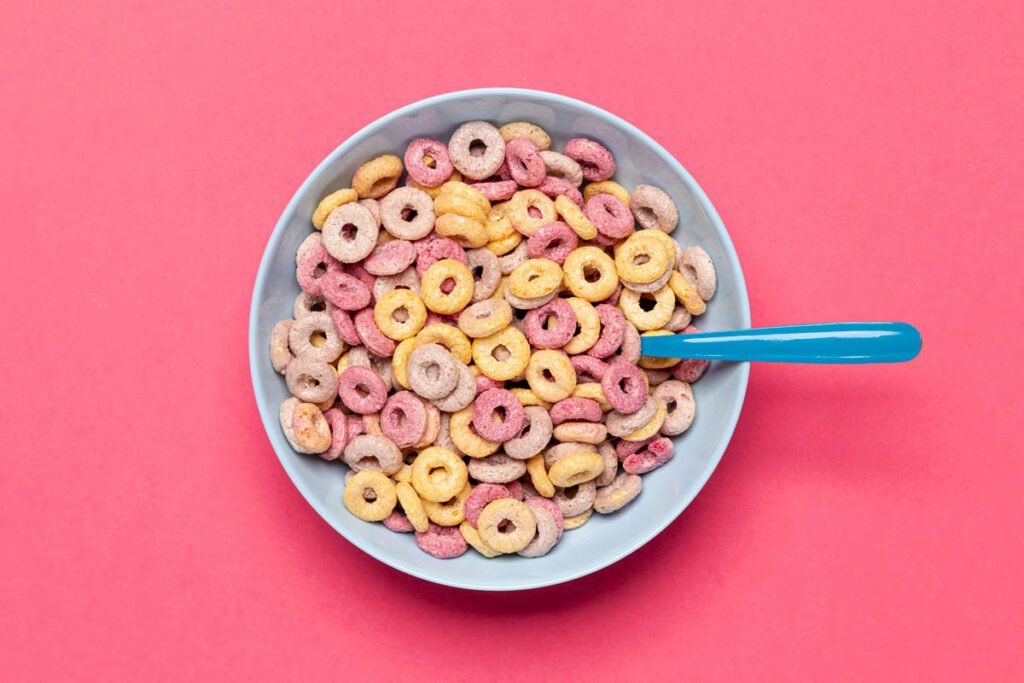Many people might think that organic and non-sweetened cereals are good options for a healthy breakfast but the reality is a little bit different.
It’s just too easy and convenient to pop up that corn flakes, fruit loops or a greasy muffin from the supermarket. The sad reality is that these things are usually processed, high-sugar foods with almost zero nutritional value. The solution? Wholesome, unprocessed foods that can provide sustained energy and a sense of well-being.
Why are cereals bad?
While sugary cereals are clearly unhealthy, even those labeled as “sugar-free” or having low sugar content may not be the healthiest breakfast option. Despite they don’t have added sugars, these cereals often contain refined (a.k.a. processed) grains, which have been stripped of their fiber and nutrients. Refined grains are quickly digested, causing blood sugar levels to spike and then crash, which leads to energy dips and cravings.
Additionally, many “sugar-free” cereals rely on artificial sweeteners to achieve their sweetness, which can have negative health effects. Artificial sweeteners have been linked to increased appetite, weight gain, and even changes in gut bacteria.
What are healthy breakfast options then?
Imagine waking up to the aroma of fresh berries and nuts, the crunch of a whole-grain toast, or the comforting warmth of oatmeal infused with natural sweetness. Sounds good, right? These are just a few examples of healthy, whole-food breakfast options that can be both yummy and good for you.
Whole grains, such as oats, quinoa, and brown rice, provide sustained energy due to their fiber content. Fiber slows down the digestion of carbohydrates, preventing blood sugar spikes and crashes. Whole grains also provide essential vitamins, minerals, and antioxidants, making them a much more nutritious choice than refined grains.
Also, whole grains are naturally filling, helping you feel satisfied and reducing the urge to snack throughout the morning. This can lead to healthier eating habits throughout the day.
Sweet treats
If you are one of those many people who like their breakfast rather sweet, instead of reaching for sugary cereals, opt for a bowl of plain yogurt topped with fresh berries or a drizzle of honey. Add a handful of nuts or seeds for a delightful crunch and extra nutrients.

If you’re craving something warm and comforting, consider making a batch of overnight oats. Simply soak oats in milk or yogurt overnight, then top them with your favorite fruits, seeds, and maybe a little honey (or stevia if you are a glycemic index freak). This breakfast will provide sustained energy and keep you feeling full throughout the morning.
Salty options
For those who prefer a savory start to their day, there are plenty of healthy options to choose from. Oatmeal can be made in a salty variation by adding chopped vegetables, a poached egg, and a drizzle of olive oil.

Scrambled eggs with sautéed spinach and bell peppers offer a nutritious and filling breakfast. Add a sprinkle of cheese or a dollop of avocado for added flavor and healthy fats.
Guidelines for a wholesome breakfast
- Prioritize whole grains: Opt for whole-grain bread, oats, quinoa, or brown rice. These provide essential fiber and nutrients that keep you feeling full and energized.
- Include protein: Protein helps you feel satisfied and aids in muscle growth and repair. Eggs, yogurt, nuts, and seeds are excellent sources of protein.
- Load up on fruits and vegetables: Fruits and vegetables provide a wealth of vitamins, minerals, and antioxidants, essential for overall health and well-being.
- Limit added sugars: Avoid processed foods, sugary cereals, and sweetened yogurts. Instead, use natural sweeteners like fruits, honey, or maple syrup.
- Drink plenty of water: Start your day with a glass of water to hydrate and promote digestive health.
Wrapping up
Choose whole, unprocessed foods. They can provide sustained energy, fueling your body with essential nutrients, and promoting a sense of vitality. Yes, you may not always have the time to prepare elaborate breakfasts, but making small changes can make a big difference in your overall health and well-being over time. It’s worth it!


